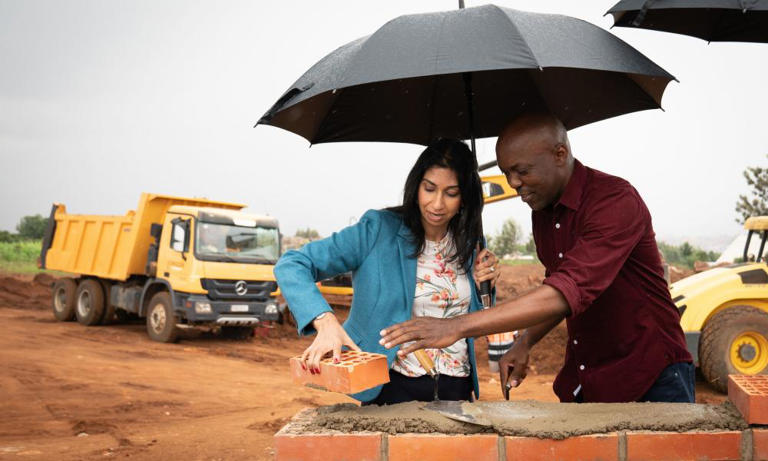- Details
- East Africa
- 782
Rishi Sunak’s government will discover next Wednesday whether its flagship immigration policy of sending asylum seekers to Rwanda is lawful.
The supreme court is set to give its judgment after the Home Office challenged a court of appeal ruling that the multimillion-pound deal to send deported asylum seekers to the east African nation was unlawful.
If the decision goes against the government, Sunak is expected to come under intense pressure from the right of his party to promise to leave the European convention on human rights [ECHR].
Suella Braverman, the home secretary, is believed be in favour of placing a pledge to leave the ECHR at the centre of a general election campaign if the judgment goes against the Home Office.
If the policy is deemed lawful, the Home Office believes that flights could take off for Kigali early next year.
Five justices at the UK’s highest court are now to give their decision on the challenge on Wednesday, the court has said.
Related: ‘Incoherence and inconsistency’: the inside story of the Rwanda deportation plan
Government lawyers have argued that the court of appeal was wrong to conclude that removal to Rwanda would breach article 3 of the European convention on human rights, which prohibits torture and inhuman or degrading treatment.
However, Raza Husain KC, for several of the asylum seekers at risk of deportation to Rwanda, later described the country’s asylum system as “woefully deficient … marked by acute unfairness and arbitrariness”.
The UNHCR, the UN refugee agency, intervened in the supreme court hearing, with its barrister Angus McCullough KC telling the court the assurances were “no sufficient answer” to “basic and fundamental defects” in the Rwandan system.
The ruling by Lords Reed, Hodge, Lloyd-Jones, Briggs and Sales will be handed down on Wednesday after 10am.
The policy of sending tens of thousands of asylum seekers to the east African country where their claims would be processed was first announced by the then prime minister Boris Johnson in April 2022.
It was devised amid growing numbers of refugees travelling across the Channel by small boat to claim asylum in the UK. Ministers believe that flights taking asylum seekers to Rwanda will act as a deterrent.
At least £140m has so far been paid to the authoritarian regime of President Paul Kagame, and the money has been spent. Despite the introduction of the illegal migration bill, no deportation flights have taken place amid a series of legal challenges.
Sunak has set stopping small boats of asylum seekers from arriving in Britain as one of his five pledges to the electorate.
But since the year started, almost 26,700 migrants have arrived via the Channel, according to UK government figures from earlier this month. By Rajeev Syal Home affairs editor, Guardian






